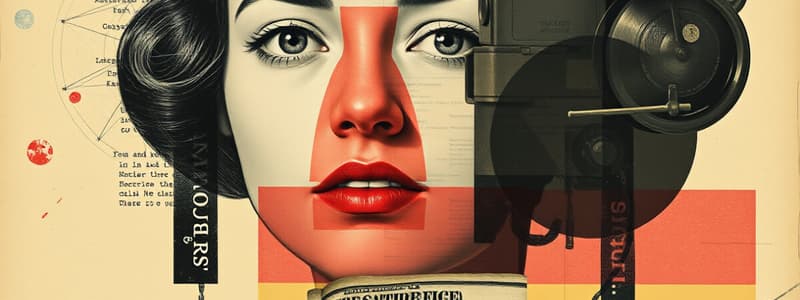Podcast
Questions and Answers
What is gross pay?
What is gross pay?
Money you earn before taxes and deductions.
What is net pay?
What is net pay?
Money you receive after taxes and deductions.
What is the first thing you should do when creating a budget?
What is the first thing you should do when creating a budget?
Calculate your take home pay (net pay).
What are items you will typically see on a budget?
What are items you will typically see on a budget?
Which pay should you use when creating a budget?
Which pay should you use when creating a budget?
What are fixed expenses?
What are fixed expenses?
What are variable expenses?
What are variable expenses?
Which type of expenses is easier to reduce when budgeting?
Which type of expenses is easier to reduce when budgeting?
What is the 50/30/20 rule?
What is the 50/30/20 rule?
What is an unsecured loan?
What is an unsecured loan?
What is a secured loan?
What is a secured loan?
What is the possible range of FICO credit scores?
What is the possible range of FICO credit scores?
What makes up your credit score?
What makes up your credit score?
What are examples of actions that will impact your credit score?
What are examples of actions that will impact your credit score?
What is the minimum payment for a credit card bill?
What is the minimum payment for a credit card bill?
What are some benefits of having a credit card?
What are some benefits of having a credit card?
What are some qualities of a checking account?
What are some qualities of a checking account?
What are the differences between a savings and checking account?
What are the differences between a savings and checking account?
What are the 4 types of savings accounts?
What are the 4 types of savings accounts?
What is a traditional savings account?
What is a traditional savings account?
What is an online savings account?
What is an online savings account?
What is a Certificate of Deposit?
What is a Certificate of Deposit?
What is a money market account?
What is a money market account?
Flashcards are hidden until you start studying
Study Notes
Gross and Net Pay
- Gross pay refers to the total earnings before any taxes or deductions.
- Net pay is the amount received after all deductions and taxes have been applied.
Budgeting Fundamentals
- Start budgeting by calculating your take-home pay, known as net pay.
- Common budget items include pay, expenses, and savings.
- Use net pay for budgeting purposes to ensure accurate financial planning.
Types of Expenses
- Fixed expenses remain constant each month, including mortgage/rent, taxes, insurance, and car loan payments.
- Variable expenses fluctuate monthly, such as electricity, heating, gas, water, and groceries.
- Variable expenses are easier to adjust in a budget to save money.
The 50/30/20 Rule
- Allocate 50% of income for needs, 30% for wants, and 20% for savings.
Loans Overview
- An unsecured loan does not require collateral and includes credit cards and student loans.
- A secured loan is backed by an asset, such as a car or house, and includes mortgages and car loans.
Credit Scores
- FICO credit scores range from 300 to 850, with a score of 700 or above considered excellent.
- Major factors influencing credit scores include payment history, credit mix, new credit inquiries, credit utilization, and length of credit history.
Credit Impact Actions
- Timely bill payments can positively affect your credit score.
- Applying for multiple credit cards within a short time can negatively impact your score.
- Long-term credit card use can enhance your credit score if managed responsibly.
Credit Card Payments
- The minimum payment is the least amount required to avoid late fees, but it often leads to higher interest charges and a longer pay-off period.
Benefits of Credit Cards
- Credit cards are useful for emergencies when cash is unavailable.
- Responsible usage can improve credit scores and earn rewards.
Checking vs. Savings Accounts
- Checking accounts allow easy access and management of funds, typically providing no interest.
- Savings accounts are intended for earning interest and saving money over time, not for daily transactions.
Types of Savings Accounts
- Traditional savings accounts earn minimal interest and have no minimum balance requirements.
- Online savings accounts offer higher interest rates due to lower operational costs.
- Certificates of Deposit (CDs) provide the highest interest rates but require funds to be locked in for set terms (e.g., 1, 3, or 5 years).
- Money Market accounts combine checking features, allow check writing and bill payments but are limited to six transactions per month and generally require a higher minimum balance.
Studying That Suits You
Use AI to generate personalized quizzes and flashcards to suit your learning preferences.




